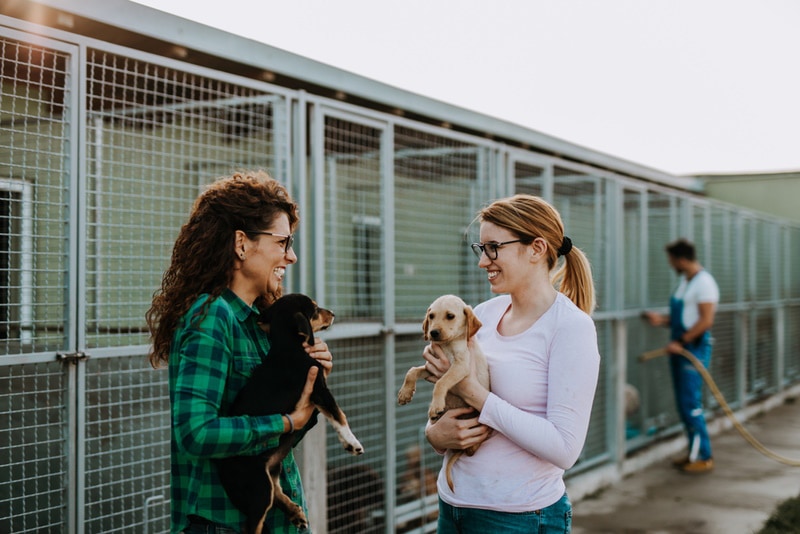
Adopting a Fearful Dog: A Step-by-Step Guide for Health-Conscious Pet Owners
Share
Adopting a dog can be a rewarding experience, but when it comes to adopting a fearful dog, the journey requires patience, understanding, and a compassionate heart. Many health-conscious pet owners are drawn to the idea of providing a loving home to a dog in need. However, it is crucial to understand the unique challenges and responsibilities that come with adopting a fearful dog.
Fearful dogs often come from backgrounds of neglect, abuse, or insufficient socialization, which can make them wary of new environments and people. As a health-conscious pet owner, you likely prioritize the mental and physical well-being of your pets. Thus, understanding the reasons behind a dog's fearfulness is essential in creating a nurturing environment where they can thrive.

Preparing Your Home for a Fearful Dog
Before bringing a fearful dog into your home, it's important to create a safe and calm environment. This means designating a quiet space where the dog can retreat when feeling overwhelmed. Consider using calming aids, such as designer collars or other holiday-themed collars, which can help soothe anxiety.
Additionally, it's crucial to establish a routine. Dogs thrive on consistency, and a set schedule can help reduce anxiety. Regular feeding times, walks, and play sessions will provide your new furry friend with a sense of security.
Building Trust and Confidence
Building trust with a fearful dog takes time and patience. Start by allowing the dog to approach you at their own pace. Avoid forcing interactions and instead, use positive reinforcement techniques. Reward calm behavior with treats and praise, reinforcing the idea that they are safe and loved in their new home.
Engaging in activities that promote bonding, such as gentle play or training sessions, can also help build confidence. As you work together, your dog will begin to associate you with positive experiences, further strengthening your bond.
Seeking Professional Help
In some cases, the fearfulness of a dog may be deeply ingrained and require professional intervention. Don't hesitate to seek advice from a veterinarian or a certified animal behaviorist. These professionals can provide personalized strategies and support to help your dog overcome their fears.
Consider enrolling in training classes specifically designed for fearful dogs. These classes not only provide structure and guidance but also offer a socialization element, allowing your dog to interact with other dogs in a controlled environment.
Health Considerations for Fearful Dogs
Health-conscious pet owners understand the importance of maintaining both physical and mental well-being in their pets. Fearful dogs may be more prone to stress-related health issues, so it's crucial to monitor their health closely.
Regular veterinary check-ups are essential to ensure your dog is in good physical health. Discuss your dog's history and any behavioral concerns with your vet, as they can offer guidance on managing stress and anxiety. Additionally, consider incorporating stress-reducing activities, such as massage or aromatherapy, into your dog's routine.
For more insights on dog adoption, you can visit Paws Chicago, where they provide valuable resources for adopting and caring for pets.

Creating a Supportive Community
Adopting a fearful dog is a journey that is best undertaken with the support of a community. Connect with other pet owners who have experience with fearful dogs. Sharing stories, tips, and encouragement can be incredibly beneficial as you navigate this rewarding journey.
Online forums, local pet groups, and social media communities can be excellent resources for finding support and advice. Engaging with others who understand the challenges and joys of adopting a fearful dog can help you feel less isolated and more empowered in your efforts.
FAQs
Q: How long does it take for a fearful dog to adjust to a new home?
A: The adjustment period varies for each dog, ranging from a few weeks to several months. Patience and consistency are key to helping them feel secure.
Q: Can a fearful dog become socialized?
A: Yes, with time and the right approach, many fearful dogs can learn to socialize and become more comfortable around people and other animals.
Q: What should I do if my dog shows signs of extreme fear?
A: If your dog exhibits extreme fear, consider reaching out to a professional behaviorist for guidance. They can provide tailored strategies to address your dog's specific needs.
For more information on preparing for dog ownership, check out our article on knowing if you're ready for a dog. Additionally, learn about whether adopted dogs can compete in shows by visiting dog shows.
This article contains affiliate links. We may earn a commission at no extra cost to you.
